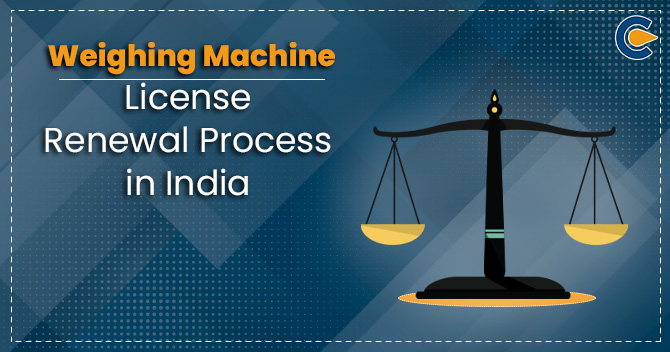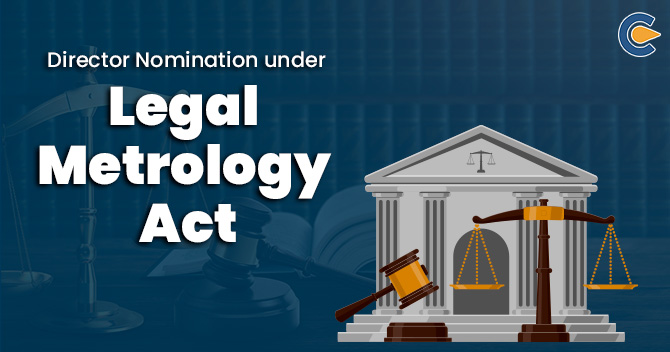The Ministry of Consumer Affairs, Food and Public Distribution under the Department of Consumer Affairs has set up the Weights and Measures Unit to promote the use of standard weights and measures instruments. There is also the Department of Legal Metrology or Department of weights and measures in different states to regulate the use of weights and measures. These departments are also regulating the model approval for Indian weights and measures instruments. The Government of India, under the Legal Metrology Act, has framed the Legal Metrology (Model Approval) Rules 2011 for model approval.
The Model Approval for Indian Weights and Measures
Model Approval for Weights and Measures under the Legal Metrology Act, 2009 made thereunder basically means that all the instruments will go for test and calibrate according to the provisions of the Act and the Rules made thereunder. Testing is mandatory for model approval for Indian Weights and Measures instruments.
As stated in Section 22 of the Legal Metrology Act 2009, every weight and measure instrument must satisfy the standards set by the Department of Legal Metrology. The power of model approval for Indian weights and measures instruments lies with the Department of Legal Metrology governed by the Government of India under the ambit of the Ministry of Consumer Affairs[1], Food and Public Distribution located in New Delhi.
The manufacturer should obtain such model approval before manufacturing the weights and measures instruments. With the application of model approval for Indian weights and measures instruments, the manufacturer must provide the requisite fee and all the required documents as per the Legal Metrology laws.
A minimum of two samples of each model should be sent for testing to labs established by the Government. For such testing, the Government has set up eight laboratories at different places in India. Once the testing is done successfully, the Director of the Legal Metrology Department issues the certificate for model approval for Indian weights and measures instruments to the manufacturer.
Application of Model Approval for Indian Weights and Measures
The application of model approval for Indian weights and measures instruments should be made to the Director of the Legal Metrology Department. The followings should be the contents of the application:
- Details of the applicant, such as name and address
- Brief descriptions of weights and measures, including class and uses
- Metrological and technical characteristics and qualities of weights and measures
- Test procedure
- Trade or brand name and types of weights and measures
- The fee as required by the Government
- At least two copies of sketch and drawing of general arrangements and installation, including details of construction of such weights and measures
- No less than two copies of documents describing the followings:
- Principle of construction and method of operation
- Safety devices are provided to prevent the fraudulent or inaccurate operation
- Manned and extend to which the weights and measures are corrected or adjusted
- Place where verification stamp or seal has been affixed.
- General arrangements and installation drawings, including detailed installation instruction (if necessary) of weights and measures
- Photographs of model
- Actual circuit diagram
- Copies of the user manual, printed pamphlet, etc.
- Any other information
- If the weight or measure is provided with supplemental or additional devices, then full information of such supplemental or additional devices.
Test for model approval for Indian weights and measures
The model submitted for model approval for Indian weights and measures instruments needs to go for a test of assessment of its fitness. Such test should be made with a view to:
- Ascertain whether the model conforms to the standard established by the Act or rules made thereunder; or any International Organisation.
- To find out the ability of the model to maintain the accuracy and technical characteristics or qualities after it has been put to work for a minimum number of times as the Director specifies.
- Determine the performance of the model under varied conditions of use.
- Determine the metrological and technical characteristics of the use
- Determine whether they carry mandatory declarations as required by Legal Metrology laws
- Determine whether the place of sealing of instrument as suggested by the manufacturer is sufficient to prevent the fraudulent use
- Determine the behaviour of the model
Every model for approval should be tested as per the procedure stated by the Director of the Department or recognised laboratory.
Certificate of Recognition to the Laboratories
The laboratory that seeks to carry out the test for model approval should apply to the Director, and the principal officer should make the application to the laboratory. One or more officers are sent by the Director to such applicant laboratory to obtain the following information:
- Measuring equipment, testing facility and properly maintained building
- Qualified staff and components to undertake the test
- Appropriate environment
- Adequate recording system
- Expeditious, efficient and adequate service
- Ready and willing for verification by the appropriate laboratory as specified by the Director
- Certified by the NABL (National Accreditation Board of Laboratories)
After obtaining the information, the Director issues a certificate of recognition and a code number to such applicant laboratory. The principal officer shall annually report to the Director about the details of the test along with the fee made.
In case of urgent necessities, the Director may grant a provisional certificate of recognition to any laboratory which fulfils the requirements after taking the consent of its principal officer. This provisional certificate will be valid for one year only. But the manufacturer can apply for an extension of this one year if the test is not completed in this one year.
The certificate of recognition can be suspended by the Director if any of the above-mentioned conditions is violated, but the suspension will be done only after giving an opportunity of showing no cause. Once the violation, omission or failure of the condition is made good, the suspension shall stand vacated. The certificate of recognition can be cancelled in case the laboratory cannot function properly or is guilty of corrupt practices.
Testing of Substitute Material
The substitute material should be sent within seven days from its commencement by the manufacturer to the Director, who will forward it to the recognised laboratory for testing. If the laboratory finds that the substitute material is not suitable, then the proposed model should be treated as a new model. The recognised lab will send the finding to the Director, who will forward it to the Central Government for model approval for Indian weights and measures instruments.
Fee for the test by Recognised Laboratory
The government fee for the testing of the model intended to be manufactured for sale, purchase, delivery or distribution in the course of trade:
- Demand draft of Rs. 5,000/- for testing of mechanical type model
- Demand draft of Rs. 10,000/-for testing digital/electronic type of model
For testing of substitute material, half of the above-mentioned fee needs to be paid.
Procedure for Model Approval for Indian weights and measures
After completion of the test, the laboratory sends its report to the Director with its recommendation on whether the model is as per standards stated in laws of legal metrology. The Director, after examining the report, sends it to the Central Government and shall recommend the Central Government issue the certificate of Model Approval for Indian weights and measures instruments. The central Government then issue the certificate and authorise him to authenticate the certificate on its behalf. A code number shall be assigned to the model, and it shall be mentioned in the certificate of model approval.
If the recognised laboratory does not recommend model approval, then it can be re-submitted after making modifications. This re-submission shall be treated as fresh submission, and it will attract the requisite fee as a fresh submission.
The certificate shall become effective after publication in the official gazette by the Director.
Contents of Certificate of Model Approval
The certificate of model approval for Indian weights and measures instruments shall contain:
- Number of the certificate
- Description of the model (brief)
- The mark assigned
- The category of instruments
- Result of tests
- Verification and use of instruments
- The place where the verification seal or stamp is to be affixed
The mark assigned to the certificate must contain the followings:
- The National Identification Letter
- The last two digits of the year in which the certificate was issued
- Code number of laboratory
- Code number of model
The mark should be affixed at the place of manufacture and the instrument manufactured.
Revocation and Suspension of Certificate of Approval
The certificate of model approval for Indian weights and measures instruments may be revoked by the Central Government in the following cases:
- If it no longer complies with the Unit specified under the Rules
- It has ceased to conform to standards for the time being in force
- The manufacturer is not following any of the condition
- Defects in reliability, accuracy and performance of the weights or measures
- The manufacturer or any other person has altered the model or circuit diagram
- When the approved design has been altered
Before such revocation, an opportunity to show cause against the proposed action should be given to the holder of such certificate. The production of such instruments shall be stopped after the revocation.
The Director can suspend the certificate of model approval for Indian weights and measures Instruments in case of any omission or failure on the part of the holder of such certificate. The suspension will not be done without giving any opportunity to show cause to the holder of such a certificate.
The revocation and suspension of the certificate of the model shall be published in Official Gazette.
Conclusion
The Model Approval for Indian weights and measures instruments is granted by the Director of the Department of Legal Metrology. Such Model Approval is guided by the Legal Metrology (Model Approval) Rules, 2011, passed by Central Government under Section 22 of the Legal Metrology Act. There should be mandatory testing of the model before issuing the certificate of model approval for Indian weights and measures instruments. The Model Approval shall be notified in the Official Gazette by the Director. Such model approval can be revoked or suspended in case of non-compliance with provisions of the Act or rules made thereunder.
Read our Article:Applicability of Legal Metrology on E-commerce Marketplaces – An Overview











